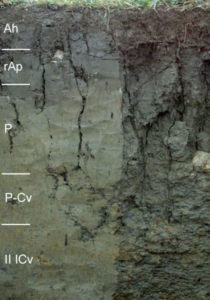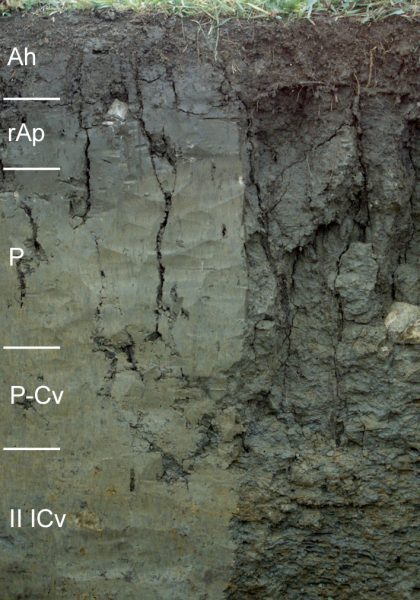

On 03.12.2021, the soil of the year 2022 was announced: the Pelosol. Pelosol means "clay soil" in German. Pelosols are soils that consist of clay above a soil depth of 30 cm. Within Germany, the pelosol is particularly widespread in the southwest, where clay-rich rocks occur (e.g. clay rocks, clay marl rocks or volcanic rocks). Due to the high clay content of pelosols, these soils can swell and shrink. As a result, pelosols can hold soil water very well and store many nutrients. This soil type is a designated groundwater protector and filters many water-damaging substances from the seepage water.
Due to the high clay content, the soil swells when wet and is then very susceptible to compaction during mechanical processing. When dry, deep shrinkage cracks form, as well as angular soil aggregates (polyhedra and prisms). The soil is then too hard for mechanical tillage. Since there is only a short time phase between too wet and too dry, during which the soil can be well ploughed, harrowed and mulched, this soil type is also called minute soil.
Pelosols are predominantly used for arable farming. To protect the soil, shallow and minimal tillage is therefore crucial, as ploughing too deeply destroys the soil structure (polyhedron and prism structure). Pelosols are also present in forests (deep-rooted tree species), under permanent grassland and under orchards. It is important for the protection of pelosols to use the soil gently, so that the soil does not have to be tilled several times a year with heavy equipment.
In summary, it is therefore important for the soil protection of pelosols:
- Careful and gentle use
- Tillage at the right time, not too wet and not too dry
- Do not work with heavy equipment / machinery
- Protection against erosion on arable land, if possible through long soil cover and shallow soil cultivation
Links to sources:
Image sources/originators: Soil of the Year Board of Trustees (German Soil Science Society / German Soil Association / Engineering Association for Contaminated Site Management and Land Recycling)

